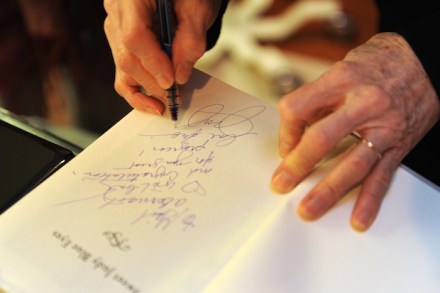Dear Mary | 16 July 2015
Q. At a recent literary festival I attended a talk with a high-profile octogenarian writer. I had already bought her book, so I obediently queued with the others lining up to get it signed. When I reached the writer, she was exchanging a few polite words with me while signing her book (I know several members of her family) when suddenly we were interrupted by another woman coming in from the side, barging the queue and not even holding a copy of the book. She was clearly determined to show everyone that she knew the writer socially and didn’t seem to realise that her behaviour was vulgar and out of



















